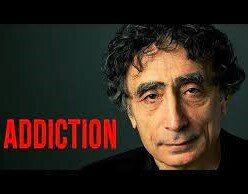
Today, I want to share a short clip by the medical doctor Gabor Mate on the root cause of addiction–trauma. I think his take is very telling and credible given his extensive experience with addicts. It’s also indicative of how out-of-touch the global mainstream is on the issue of addiction and its proper treatment. What should be a common sense understanding has become a specialized worldview that relatively few professionals today possess. If we do not understand a problem, then the solutions we invent to resolve it are unlikely to be effective.
Check out the full video down below, as well as the sections that I transcribed!
What do you think is the cause(s) of addiction? Could a more understanding, compassionate approach lead to better outcomes for addicts?
For more, see the complete archive of articles on integrity.
Transcript:
In other words, the addiction wasn’t your problem. Your problem was you had a lot of emotional pain you didn’t know what to do with. So when you say, why do people use substances? Or why do people engage in addictions in general? It’s because they have a problem they don’t know what to do with. And if you really understand their addiction, we have to ask, “Well, what gave you so much emotional pain, and how come you didn’t have the internal resources”—this is not a judgment, it’s simply an inquiry—”how come you lacked at some point the internal resources to deal with that pain in a more creative, forward-looking way that would help you resolve the pain, rather than to perpetuate it?â€
The average medical student until very recently has never even heard the word trauma in their education. It doesn’t show up. We don’t talk about it, we don’t talk about its impact on the brain, on the personality, on the emotional life of people, on its impact on people’s physical health. It’s not a word that we mention. We’re trauma-phobic. As a fellow doctor said to me, the medical profession is trauma-phobic.
Psychiatrists these days are trained mostly in this biological model of psychiatry where everything comes down to a biological brain disease. “Here let’s give you a pill.†The last thing most psychiatrists know how to talk about is actually emotional pain or its urgency in human experience. You’d think they know how to do that, but they don’t. They’re not trained in it. It’s not part of the predominant medical ideology.
You know as a physician, I can tell you, we like to think of medicine as a science, and it has certainly great scientific achievements to its credit and great scientific insights to buttress its successes, but it’s as much as ideology as a science, and ideology has certain hidden assumptions that are hidden from the people that believe in ideology, and so that if something is excluded by ideology, you just won’t see it, and so that you can be talking to somebody about your addiction, and the simple question “what did they do for you?†and “how come you’re in so much emotional pain?†doesn’t occur to anybody, you know, trained in a classical manner.
Now this is true not just for physicians, it’s true for a lot of psychologists as well who are more interested in solving your problems and getting you to overcome the behavior than in asking, well, okay, “where does the behavior come from?†And “what are you still carrying inside that’s making you behave that way?†and “how can we help you resolve what’s inside you?†not just how do we help you change your behavior, but how do we help you change.
Now that’s what healing is, and that happens inside a person so it’s never a question of anybody curing anybody else but we can guide people to healing if we ask the right questions.

